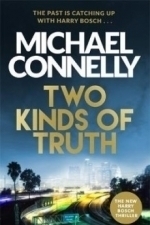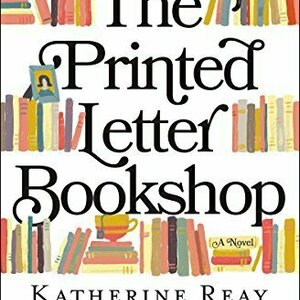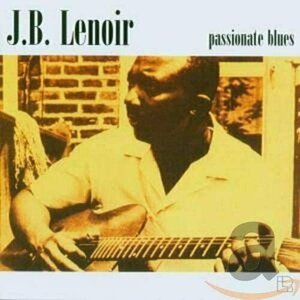Search
Search results
Kristy H (1252 KP) rated Two Kinds of Truth (Harry Bosch #20) in Books
Jan 10, 2018
Another wonderful mystery novel featuring Connelly's excellently developed lead detective
Michael Connelly's iconic detective, Harry Bosch, is back again. Harry's basically a volunteer for the San Fernando police department, working cold cases for the tiny force and mentoring their three young detectives. When they are called out for a murder of a father and son at a local pharmacy, Harry assists the inexperienced team in trying to track down the killers. The case leads Harry and his detectives into the dark world of opiates--both the big money of pill mills and the sad, cold side of addiction. Meanwhile, Harry hears from his former employer, the LAPD, when one of his thirty-year-old cases is reopened based on new evidence. Even worse, the killer is claiming Harry framed him. The case threatens Harry's most prized possession: his reputation as a cop, and he knows that no one will fight to clear his name like himself. The two unrelated cases pull at different sides of Bosch as he works to discover all different facets of the truth.
I love Harry Bosch so much, and there will be a hole in my heart when Connelly no longer writes about him. I actually moved this book up in my rotation (something I rarely ever do!) so I could read it on a weekend trip to Chicago, and my only regret is that it meant I finished it in about 48 hours, and now it's over. Per usual, Connelly gives us yet another wonderful mystery novel featuring his excellently developed lead detective. This one covers the timely topic of the opiate crisis, which looms fairly large in America today. It's well-researched, as always.
Reading a Bosch novel is like picking up with an old friend, and this one is no different. Our Bosch is aging, which this book acknowledges well. We see Bosch still grappling with having left the LAPD--who can he trust, what can he do with his life now. We even get some appearances from previous characters in earlier novels. Perhaps the best thing is a fairly large role for Bosch's half brother Mickey Haller, the famed "Lincoln Lawyer." These two are still figuring out their own relationship, but it's a treat for us readers to get a glimpse of Mickey; we even get to see some of his enjoyable courtroom antics. There's even an appearance from Mickey's investigator, Cisco! (See, it's like being old friends!)
And, of course, we can't forget the actual story, which, in usual Connelly style is excellent and tracks along flawlessly along Bosch's own journey. The opiate tale is both fascinating and depressing, while Bosch's unraveling of the backstory behind the reopened cold case will certainly keep you reading. There's never really any crazy twists or turns, but the novel moves along steadily and easily. There's both growth and angst with Bosch--I have to admit, I worry about the end of his arc, but I will still enjoy every moment I get with him until them.
Another enjoyable one for the Bosch canon--certainly recommend!
I love Harry Bosch so much, and there will be a hole in my heart when Connelly no longer writes about him. I actually moved this book up in my rotation (something I rarely ever do!) so I could read it on a weekend trip to Chicago, and my only regret is that it meant I finished it in about 48 hours, and now it's over. Per usual, Connelly gives us yet another wonderful mystery novel featuring his excellently developed lead detective. This one covers the timely topic of the opiate crisis, which looms fairly large in America today. It's well-researched, as always.
Reading a Bosch novel is like picking up with an old friend, and this one is no different. Our Bosch is aging, which this book acknowledges well. We see Bosch still grappling with having left the LAPD--who can he trust, what can he do with his life now. We even get some appearances from previous characters in earlier novels. Perhaps the best thing is a fairly large role for Bosch's half brother Mickey Haller, the famed "Lincoln Lawyer." These two are still figuring out their own relationship, but it's a treat for us readers to get a glimpse of Mickey; we even get to see some of his enjoyable courtroom antics. There's even an appearance from Mickey's investigator, Cisco! (See, it's like being old friends!)
And, of course, we can't forget the actual story, which, in usual Connelly style is excellent and tracks along flawlessly along Bosch's own journey. The opiate tale is both fascinating and depressing, while Bosch's unraveling of the backstory behind the reopened cold case will certainly keep you reading. There's never really any crazy twists or turns, but the novel moves along steadily and easily. There's both growth and angst with Bosch--I have to admit, I worry about the end of his arc, but I will still enjoy every moment I get with him until them.
Another enjoyable one for the Bosch canon--certainly recommend!
Hazel (1853 KP) rated The Moment Collector in Books
May 30, 2017
That ending ...
Originally posted on NetGalley.
Jodi Lynn Anderson’s latest novel The Moment Collector has been described as a haunting, mystery romance. There is certainly romance involved between the characters, however the mystery storyline is not so strong.
Sixteen year old, Maggie Larsen has just moved from Chicago with her parents to their new home in County Door on the edge of Lake Michigan. Being homeschooled means she does not have to deal with settling into a new school but she does need to get used to the quietness of the area. She quickly becomes friends with two other teenagers, Pauline Boden and Liam Witte, and spends plenty of time with them in the woods and by the lake.
Things, however, are not as idyllic as they may seem. Starting from the day of Maggie’s arrival, reports keep coming in of girls being found dead, floating in the water. It appears that there is a serial killer on the loose and many girls, including Maggie and Pauline, may be in danger.
As well as all this there is another part of the story told through paragraphs in italics. The ghost of a girl is living in Maggie’s basement. She is not sure who she is or whether she has a purpose. All she can do is watch.
It is difficult at first to get into the story. It is a while before anything of note begins to happen. The murders feel a pointless part of the novel especially as they do not appear to connect to Maggie in any way. The reader may expect Maggie to be kidnapped or hurt but after nothing happens during the first two thirds it seems doubtful that anything ever will.
Up until the final chapters, the ghost also feels meaningless. She does not connect with Maggie nor affects the outcome of the story. Maggie is not ever aware of her existence.
The third person writing style makes it difficult for the reader to relate to Maggie. She is a girl who rarely complains and keeps her emotions to herself; therefore it is not easy to truly get a sense of the way she feels. Due to this it is hard to feel any emotion about her love interest and eventual betrayal. Despite this, the ending is moving especially once it is realized who the ghost actually is.
‘The Moment Collector' does not really fit the story as a title. If there was more input from the ghost then it may possibly be more adequate, but overall the story mostly focuses on the relationships between Maggie, Pauline and Liam. The blurb is also a little deceptive when mentioning: “There’s a ghost haunting 208 Water Street.” The ghost is not doing any haunting in the paranormal novel-type sense. There were hints in the narrative that things may become more supernatural with mentions of Pesta, the Scandinavian version of the Grim Reaper. However these references amounted to nothing.
For those looking for a young adult romance novel complete with heartbreaking ending then this is the book to read. But for anything else there may not be enough substance to maintain a strong interest.
Jodi Lynn Anderson’s latest novel The Moment Collector has been described as a haunting, mystery romance. There is certainly romance involved between the characters, however the mystery storyline is not so strong.
Sixteen year old, Maggie Larsen has just moved from Chicago with her parents to their new home in County Door on the edge of Lake Michigan. Being homeschooled means she does not have to deal with settling into a new school but she does need to get used to the quietness of the area. She quickly becomes friends with two other teenagers, Pauline Boden and Liam Witte, and spends plenty of time with them in the woods and by the lake.
Things, however, are not as idyllic as they may seem. Starting from the day of Maggie’s arrival, reports keep coming in of girls being found dead, floating in the water. It appears that there is a serial killer on the loose and many girls, including Maggie and Pauline, may be in danger.
As well as all this there is another part of the story told through paragraphs in italics. The ghost of a girl is living in Maggie’s basement. She is not sure who she is or whether she has a purpose. All she can do is watch.
It is difficult at first to get into the story. It is a while before anything of note begins to happen. The murders feel a pointless part of the novel especially as they do not appear to connect to Maggie in any way. The reader may expect Maggie to be kidnapped or hurt but after nothing happens during the first two thirds it seems doubtful that anything ever will.
Up until the final chapters, the ghost also feels meaningless. She does not connect with Maggie nor affects the outcome of the story. Maggie is not ever aware of her existence.
The third person writing style makes it difficult for the reader to relate to Maggie. She is a girl who rarely complains and keeps her emotions to herself; therefore it is not easy to truly get a sense of the way she feels. Due to this it is hard to feel any emotion about her love interest and eventual betrayal. Despite this, the ending is moving especially once it is realized who the ghost actually is.
‘The Moment Collector' does not really fit the story as a title. If there was more input from the ghost then it may possibly be more adequate, but overall the story mostly focuses on the relationships between Maggie, Pauline and Liam. The blurb is also a little deceptive when mentioning: “There’s a ghost haunting 208 Water Street.” The ghost is not doing any haunting in the paranormal novel-type sense. There were hints in the narrative that things may become more supernatural with mentions of Pesta, the Scandinavian version of the Grim Reaper. However these references amounted to nothing.
For those looking for a young adult romance novel complete with heartbreaking ending then this is the book to read. But for anything else there may not be enough substance to maintain a strong interest.
Hazel (1853 KP) rated The Moment Collector in Books
Dec 7, 2018
<i>Originally posted on NetGalley.</i>
Jodi Lynn Anderson’s latest novel <i>The Moment Collector</i> has been described as a haunting, mystery romance. There is certainly romance involved between the characters, however the mystery storyline is not so strong.
Sixteen year old, Maggie Larsen has just moved from Chicago with her parents to their new home in County Door on the edge of Lake Michigan. Being homeschooled means she does not have to deal with settling into a new school but she does need to get used to the quietness of the area. She quickly becomes friends with two other teenagers, Pauline Boden and Liam Witte, and spends plenty of time with them in the woods and by the lake.
Things, however, are not as idyllic as they may seem. Starting from the day of Maggie’s arrival, reports keep coming in of girls being found dead, floating in the water. It appears that there is a serial killer on the loose and many girls, including Maggie and Pauline, may be in danger.
As well as all this there is another part of the story told through paragraphs in italics. The ghost of a girl is living in Maggie’s basement. She is not sure who she is or whether she has a purpose. All she can do is watch.
It is difficult at first to get into the story. It is a while before anything of note begins to happen. The murders feel a pointless part of the novel especially as they do not appear to connect to Maggie in any way. The reader may expect Maggie to be kidnapped or hurt but after nothing happens during the first two thirds it seems doubtful that anything ever will.
Up until the final chapters, the ghost also feels meaningless. She does not connect with Maggie nor affects the outcome of the story. Maggie is not ever aware of her existence.
The third person writing style makes it difficult for the reader to relate to Maggie. She is a girl who rarely complains and keeps her emotions to herself; therefore it is not easy to truly get a sense of the way she feels. Due to this it is hard to feel any emotion about her love interest and eventual betrayal. Despite this, the ending is moving especially once it is realized who the ghost actually is.
<i>‘The Moment Collector’</i> does not really fit the story as a title. If there was more input from the ghost then it may possibly be more adequate, but overall the story mostly focuses on the relationships between Maggie, Pauline and Liam. The blurb is also a little deceptive when mentioning: “There’s a ghost haunting 208 Water Street.” The ghost is not doing any haunting in the paranormal novel-type sense. There were hints in the narrative that things may become more supernatural with mentions of <i>Pesta</i>, the Scandinavian version of the Grim Reaper. However these references amounted to nothing.
For those looking for a young adult romance novel complete with heartbreaking ending then this is the book to read. But for anything else there may not be enough substance to maintain a strong interest.
Jodi Lynn Anderson’s latest novel <i>The Moment Collector</i> has been described as a haunting, mystery romance. There is certainly romance involved between the characters, however the mystery storyline is not so strong.
Sixteen year old, Maggie Larsen has just moved from Chicago with her parents to their new home in County Door on the edge of Lake Michigan. Being homeschooled means she does not have to deal with settling into a new school but she does need to get used to the quietness of the area. She quickly becomes friends with two other teenagers, Pauline Boden and Liam Witte, and spends plenty of time with them in the woods and by the lake.
Things, however, are not as idyllic as they may seem. Starting from the day of Maggie’s arrival, reports keep coming in of girls being found dead, floating in the water. It appears that there is a serial killer on the loose and many girls, including Maggie and Pauline, may be in danger.
As well as all this there is another part of the story told through paragraphs in italics. The ghost of a girl is living in Maggie’s basement. She is not sure who she is or whether she has a purpose. All she can do is watch.
It is difficult at first to get into the story. It is a while before anything of note begins to happen. The murders feel a pointless part of the novel especially as they do not appear to connect to Maggie in any way. The reader may expect Maggie to be kidnapped or hurt but after nothing happens during the first two thirds it seems doubtful that anything ever will.
Up until the final chapters, the ghost also feels meaningless. She does not connect with Maggie nor affects the outcome of the story. Maggie is not ever aware of her existence.
The third person writing style makes it difficult for the reader to relate to Maggie. She is a girl who rarely complains and keeps her emotions to herself; therefore it is not easy to truly get a sense of the way she feels. Due to this it is hard to feel any emotion about her love interest and eventual betrayal. Despite this, the ending is moving especially once it is realized who the ghost actually is.
<i>‘The Moment Collector’</i> does not really fit the story as a title. If there was more input from the ghost then it may possibly be more adequate, but overall the story mostly focuses on the relationships between Maggie, Pauline and Liam. The blurb is also a little deceptive when mentioning: “There’s a ghost haunting 208 Water Street.” The ghost is not doing any haunting in the paranormal novel-type sense. There were hints in the narrative that things may become more supernatural with mentions of <i>Pesta</i>, the Scandinavian version of the Grim Reaper. However these references amounted to nothing.
For those looking for a young adult romance novel complete with heartbreaking ending then this is the book to read. But for anything else there may not be enough substance to maintain a strong interest.
MaryAnn (14 KP) rated The Printed Letter Bookshop in Books
Nov 4, 2019
Amid literature and lattes, three women come together and find that sharing ones journey with best friends makes life richer.
When attorney Madeline Carter inherits her aunts bookstore in a small town north of Chicago, she plans to sell it and add the proceeds to her nonexistent investment portfolio. But plans change when Madeline discovers the store isnt making money and she gets passed over for promotion at her firm. She quits in protest, takes the train north, and decides to work at the store to prep it for sale. Madeline soon finds herself at odds with employees Jessica and Courtney; when she also finds herself attracted to an affianced man, it only confuses the entire situation. After blowing up her marriage two years earlier, Janet has found solace working at the bookstore and a kindred spirit within its owner, Maddie Cullen. But when Maddie dies and her niece, Madeline, barges in like a bulldozer, Janet pushes at the new owner in every way-until she trips over common ground. Soon the women are delving into online dating and fashion makeovers, and Janet feels the pull to rediscover her art, a love she thought long behind her. After a night of bad decisions leaves the store in peril, Claire arrives and tries to save the day. While she, too, found sanctuary in the little bookstore, she knows its under-insured, in the red, and will never survive. When she discovers her teenage daughter has played a part in vandalizing the store, Courtney taps into strength she didnt know existed or had long forgotten. The quietest of the three, she steps up and finds a way to save her family, the store, and the precious friendships that have grown within it. The Printed Letter Bookshop is the story of friends who find each other-and themselves-in a place none of them ever expected.
This is a wonderful read. It's hard to put down once the reader begins the story. One shop, three women and their lives are connected through one woman, Aunt Maddie. In this story, we learn through three women how one magnificent woman helps each woman, Madeline, Janet, and Claire take a look into their lives through books that she has left them to read after her death.
I love bookstores, and this one is more than a bookstore; it's a place where friends come together for love, help, and healing. It's about friendships that can last through trials and tribulations. It's about one woman's legacy and how she looked at life. It's a story that one should not miss.
This is a story of finding one's calling in life, of love, forgiveness and true friendships that last through trials and tribulations, not just in the good times but in the worst of days. This was a wonderful book that teaches us that reading is beneficial, soothing and can always be a learning experience.
I loved the shop; I wish it were real if it were I would visit everyday!
When attorney Madeline Carter inherits her aunts bookstore in a small town north of Chicago, she plans to sell it and add the proceeds to her nonexistent investment portfolio. But plans change when Madeline discovers the store isnt making money and she gets passed over for promotion at her firm. She quits in protest, takes the train north, and decides to work at the store to prep it for sale. Madeline soon finds herself at odds with employees Jessica and Courtney; when she also finds herself attracted to an affianced man, it only confuses the entire situation. After blowing up her marriage two years earlier, Janet has found solace working at the bookstore and a kindred spirit within its owner, Maddie Cullen. But when Maddie dies and her niece, Madeline, barges in like a bulldozer, Janet pushes at the new owner in every way-until she trips over common ground. Soon the women are delving into online dating and fashion makeovers, and Janet feels the pull to rediscover her art, a love she thought long behind her. After a night of bad decisions leaves the store in peril, Claire arrives and tries to save the day. While she, too, found sanctuary in the little bookstore, she knows its under-insured, in the red, and will never survive. When she discovers her teenage daughter has played a part in vandalizing the store, Courtney taps into strength she didnt know existed or had long forgotten. The quietest of the three, she steps up and finds a way to save her family, the store, and the precious friendships that have grown within it. The Printed Letter Bookshop is the story of friends who find each other-and themselves-in a place none of them ever expected.
This is a wonderful read. It's hard to put down once the reader begins the story. One shop, three women and their lives are connected through one woman, Aunt Maddie. In this story, we learn through three women how one magnificent woman helps each woman, Madeline, Janet, and Claire take a look into their lives through books that she has left them to read after her death.
I love bookstores, and this one is more than a bookstore; it's a place where friends come together for love, help, and healing. It's about friendships that can last through trials and tribulations. It's about one woman's legacy and how she looked at life. It's a story that one should not miss.
This is a story of finding one's calling in life, of love, forgiveness and true friendships that last through trials and tribulations, not just in the good times but in the worst of days. This was a wonderful book that teaches us that reading is beneficial, soothing and can always be a learning experience.
I loved the shop; I wish it were real if it were I would visit everyday!
Gareth von Kallenbach (980 KP) rated The Bourne Legacy (2012) in Movies
Aug 7, 2019
With the franchise torch passing from Matt Damon to Jeremy Renner, “The Bourne Legacy” shows that there is still plenty of life in the franchise.
The events of the film take place during and after the events in The Bourne Ultimatum”and portrays the effects and consequences of the actions taken by Jason Bourne in the first three movies. Now that Bourne has made Treadstone/Blackbriar public and began to seek some measure of justice for lives that were destroyed by the program, the government attempts to cover-up their operations and discredit Bourne and his associate CIA deputy director Pamela Landy who is facing a myriad of charges.
Enter Stacy Keach and Ed Norton who ooze a chilling creepiness as shadowy government figures who will stop at nothing to cover up the growing scandal, including wholesale murder.
Bourne and his program were, in the words of one character, “the tip of the iceberg” and as such, just another program the government ran, which had the same goals of Operation Treadstone but used different methods to create and train their agents, becomes the focus of the film.
Alex Cross (Renner), finds himself the lone survivor of a purge that has eliminated all the living members of his program, this includes the very scientists who helped created the enhanced agents. As a creation who needs special medications to function, Cross races to Washington in an attempt to reach Dr. Marta Shearing (Rachel Weisz), who has been a medical contact for Cross for years. Shearing herself is a survivor of numerous dangers and attempted assassinations, thanks to the timely arrival of Cross.
In an attempt to escape the government manhunt lead by Agent Eric Byer (Edward Norton), As these events are unfolding, the actions of Jason Bourne and Pam Landy in the final moments of ‘The Bourne Ultimatum’ are beginning to unravel which forces Cross and Marta to flee to Manila to get Cross a shot at being able to function at his elite level with the need for medications.
With locales that include the wilderness of Alaska, the alleys of Chicago, America’s east coast, and the streets of Manila, “The Bourne Legacy” breathes new life into the franchise. While the first hour of the film moved at a slow pace and lacked much action, the last thirty minutes kicked into high gear and included a fantastic chase and action sequence through Manila.
Renner does not try to be Bourne, and instead plays Cross as a kind but efficient warrior. We are given some insight into his backstory and motivations for entering the program, and Renner goes all out for a demanding and physical role while earning the audience’s sympathy for the plight of Cross.
Director Tony Gilroy (Who also had a hand in the script), knows the franchise well as he had a hand in writing the previous three films and directed one. It is clear that he is steering the franchise to a very likely fifth film, perhaps one where Renner and Damon will cross paths which would be to the fans’ delight. Should that not happen, the series is in great hands with Renner.
The events of the film take place during and after the events in The Bourne Ultimatum”and portrays the effects and consequences of the actions taken by Jason Bourne in the first three movies. Now that Bourne has made Treadstone/Blackbriar public and began to seek some measure of justice for lives that were destroyed by the program, the government attempts to cover-up their operations and discredit Bourne and his associate CIA deputy director Pamela Landy who is facing a myriad of charges.
Enter Stacy Keach and Ed Norton who ooze a chilling creepiness as shadowy government figures who will stop at nothing to cover up the growing scandal, including wholesale murder.
Bourne and his program were, in the words of one character, “the tip of the iceberg” and as such, just another program the government ran, which had the same goals of Operation Treadstone but used different methods to create and train their agents, becomes the focus of the film.
Alex Cross (Renner), finds himself the lone survivor of a purge that has eliminated all the living members of his program, this includes the very scientists who helped created the enhanced agents. As a creation who needs special medications to function, Cross races to Washington in an attempt to reach Dr. Marta Shearing (Rachel Weisz), who has been a medical contact for Cross for years. Shearing herself is a survivor of numerous dangers and attempted assassinations, thanks to the timely arrival of Cross.
In an attempt to escape the government manhunt lead by Agent Eric Byer (Edward Norton), As these events are unfolding, the actions of Jason Bourne and Pam Landy in the final moments of ‘The Bourne Ultimatum’ are beginning to unravel which forces Cross and Marta to flee to Manila to get Cross a shot at being able to function at his elite level with the need for medications.
With locales that include the wilderness of Alaska, the alleys of Chicago, America’s east coast, and the streets of Manila, “The Bourne Legacy” breathes new life into the franchise. While the first hour of the film moved at a slow pace and lacked much action, the last thirty minutes kicked into high gear and included a fantastic chase and action sequence through Manila.
Renner does not try to be Bourne, and instead plays Cross as a kind but efficient warrior. We are given some insight into his backstory and motivations for entering the program, and Renner goes all out for a demanding and physical role while earning the audience’s sympathy for the plight of Cross.
Director Tony Gilroy (Who also had a hand in the script), knows the franchise well as he had a hand in writing the previous three films and directed one. It is clear that he is steering the franchise to a very likely fifth film, perhaps one where Renner and Damon will cross paths which would be to the fans’ delight. Should that not happen, the series is in great hands with Renner.

Read by QxMD
Medical
App
'Read by QxMD' provides a single place to keep up with new medical & scientific research, read...
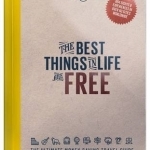
The Best Things in Life are Free
Book
Lonely Planet's The Best Things in Life are Free is packed full of money-saving tips, tricks and...
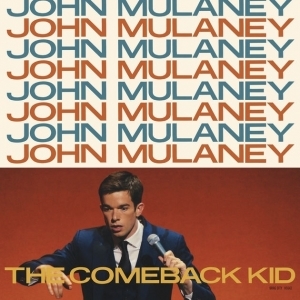
The Comeback Kid by John Mulaney
Album
John Mulaney is an American comedian, writer, and actor best known for his standup specials and work...
Ian Anderson recommended Alabama Blues/Passionate Blues by JB Lenoir in Music (curated)

Eat24 Food Delivery
Food & Drink and Travel
App
Your iPhone can now feed you. No, your phone hasn’t learned to cook but you won’t have to...
